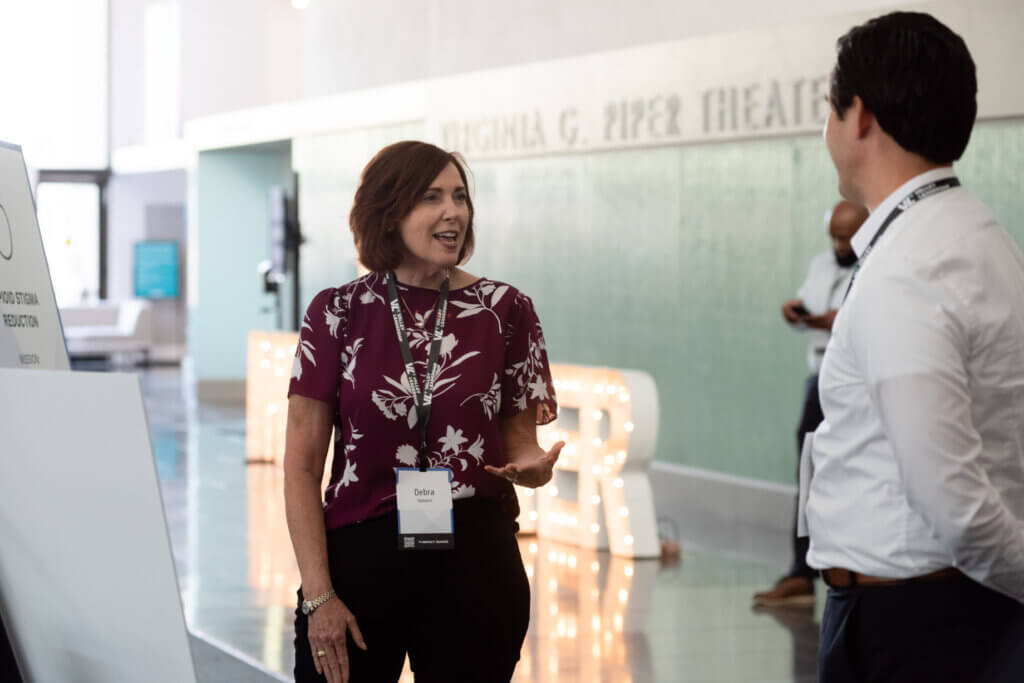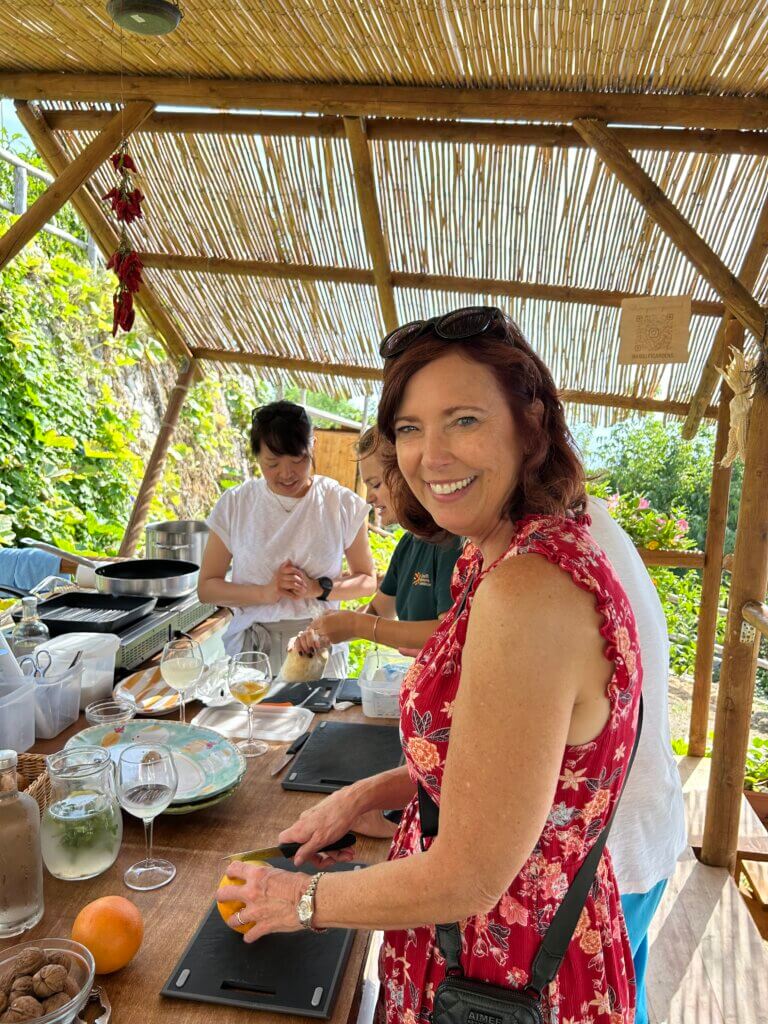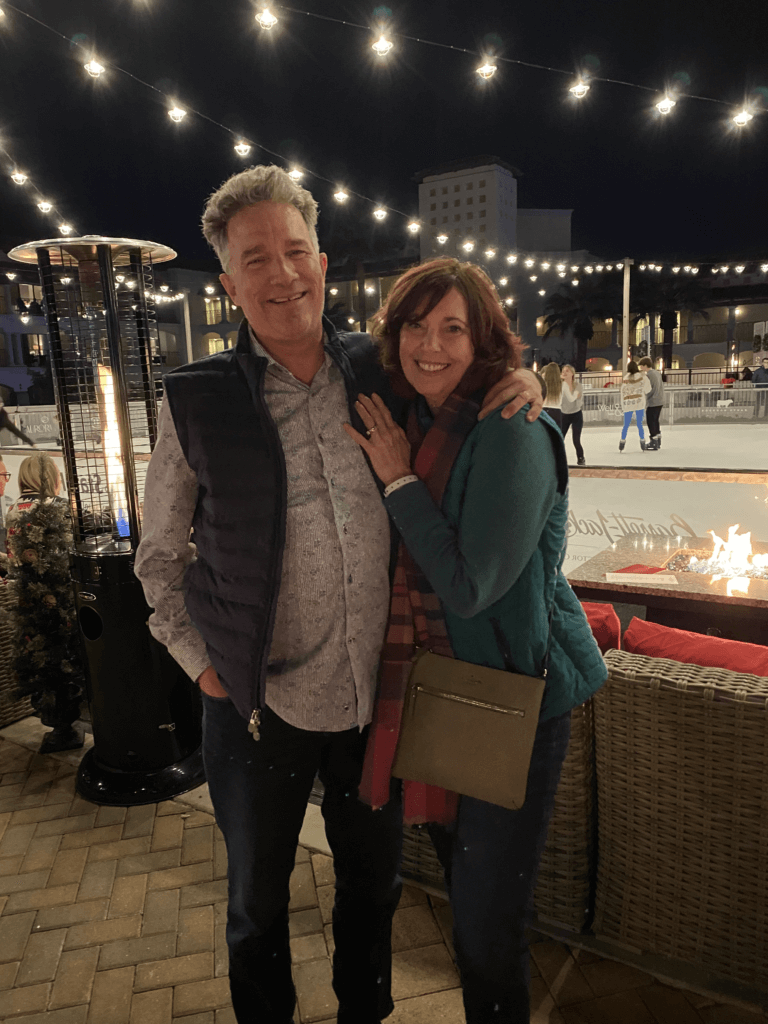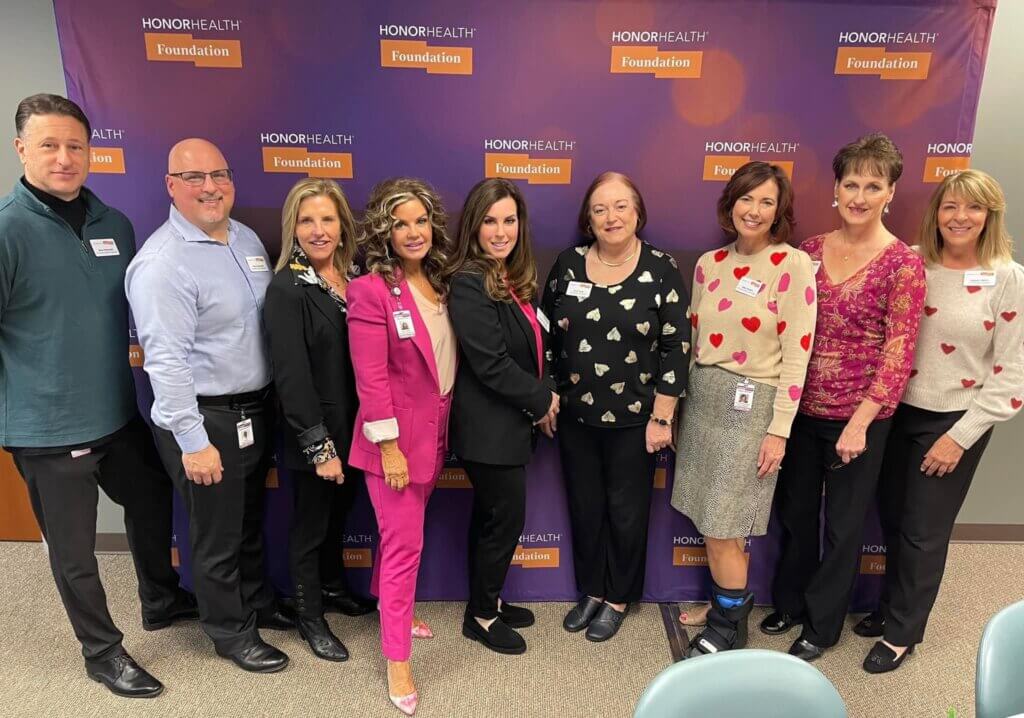Valley Leadership Announces Its First Impact Maker of the Year Award!
Valley Leadership is thrilled to announce our inaugural Impact Maker of the Year Award! This recognition celebrates exceptional individuals who drive our Impact Maker initiatives forward, making a lasting impact on Arizona’s most pressing issues. Candidates are evaluated based on their engagement history, success in addressing critical issues, and commitment to our Principles of Doing.
We are excited to introduce the first Impact Maker of the Year award recipient: Debra Stevens!
Debra’s exceptional leadership with the Health Impact Team’s Opioid Stigma Reduction To Do Item has made a profound impact on addressing Arizona’s opioid crisis. Her unwavering dedication to our principles and ability to deliver real results exemplify the spirit of this award. Keep reading to learn more about her outstanding leadership and long-term commitment to Arizona.

VL: What Principle of Doing has most resonated with you throughout your time with the Impact Maker?
DS: As a leader, the principle of “Driven to Do” resonates for me. This is more than just being busy or getting things done – it’s modeling collaboration, taking action, driving toward results and valuing progress over perfection. I try to model this in my work and volunteer commitments because “You can’t build a reputation on what you are going to do” (Henry Ford).
VL: What Valley Leadership class are you a graduate of and what was the highlight of your class experience?
DS: I was a member of Institute, Class XXII, “Double Deuce.” It’s difficult to narrow the experience down to one highlight, because the experience had a profound effect on me. For the first time, I was exposed to world views different from my own. I learned to participate in vigorous dialogue and to appreciate a variety of perspectives, even when they were polar opposite to my own.
VL: You were the founding Team Lead for the Opioid Stigma Reduction team. What inspired you to get involved and take a leadership role with Valley Leadership’s Impact Maker program?
DS: In a nutshell, Dave asked. But that was the culmination of learning about the “pivot” plan, which was a good match with my desire to continue making a difference in our community. At the same time, our family was in a battle against opioid addiction. The opportunity to turn our crisis into positive action felt like a divine appointment. So I said “yes.”

VL: Why is the “root cause” approach to problem solving with the Impact Maker important to addressing the opioid crisis?
DS: If we keep floating solutions developed in isolation, we will make a difference, but it likely will be on a small scale. Long-term, lasting impact requires that we unwind the issue back to its root causes. In healthcare, we learn that it takes, on average, eight “whys” to get to the root cause. So we kept asking “why” until we unearthed the impact of systemic stigma on the opioid crisis.
VL: Could you highlight some of the key elements of the Opioid Use Disorder Business Toolkit your team created for Arizona businesses to reduce opioid stigma and support employees dealing with opioid use disorder?

DS: With the click of a few buttons, you can find resources to assess your organization’s readiness to address Opioid Use Disorder in the workplace. It starts with reducing stigma through open communication. The toolkit delivers a decision tree based on your company size and complexity balanced against where you are in the journey. Checklists and templates give you a big head start on taking action.
But the toolkit isn’t just for those dealing with OUD right now. Why not get started before it becomes a crisis in your organization? The law of averages will bring it to your door. Being prepared means those who suffer can get the treatment they need faster, which is not only good for the individual but also the organization.
VL: As Valley Leadership’s Impact Maker of the Year, what message would you like to share with other leaders who are thinking about trying to get involved or make an impact in the community?
DS: I started this with just my lived experience for context. But I have learned so much from our strategic partners, fellow members of our Impact Team and through the research required to build our program into a usable tool. This is a recognition shared with everyone who came together to address this public health issue.
When we see a challenge that impacts our community, what do we do? To paraphrase Lee Iacocca, “Do anything! Something! So long as we don’t just sit there. If we screw it up, start over. Try something else. If we wait until we’ve satisfied all the uncertainties, it may be too late.”
